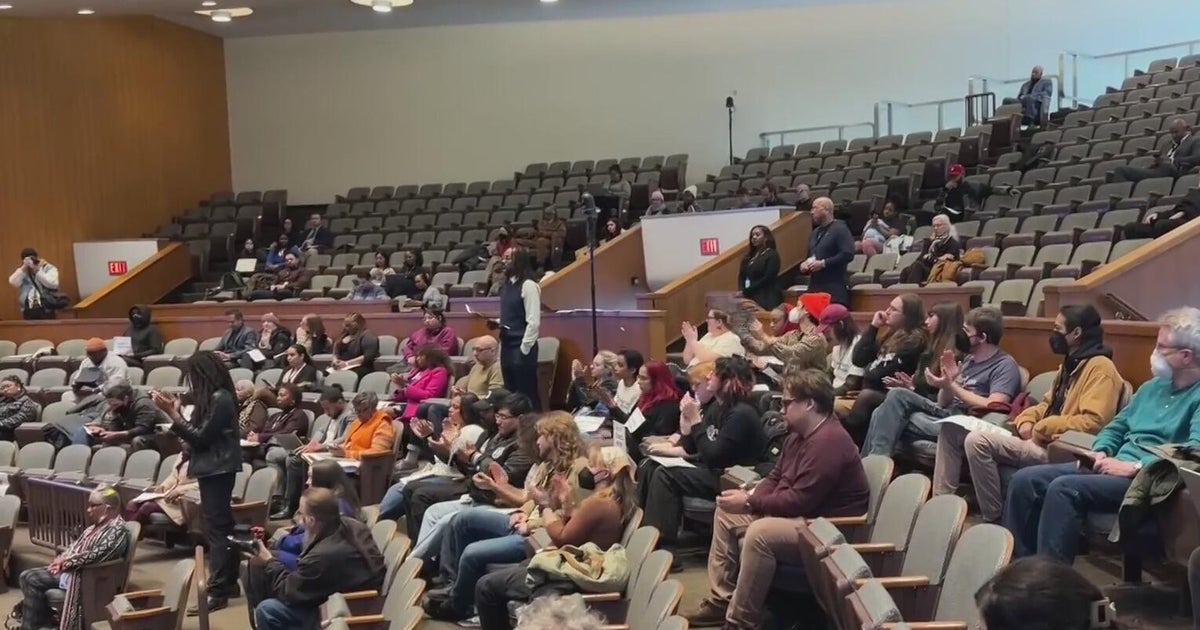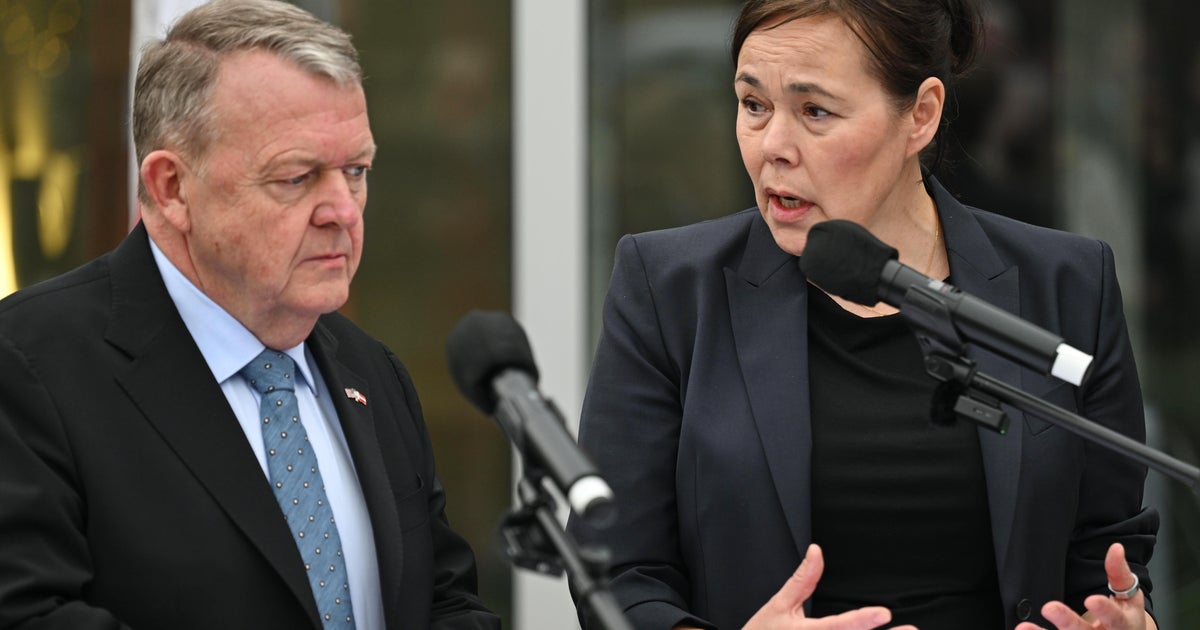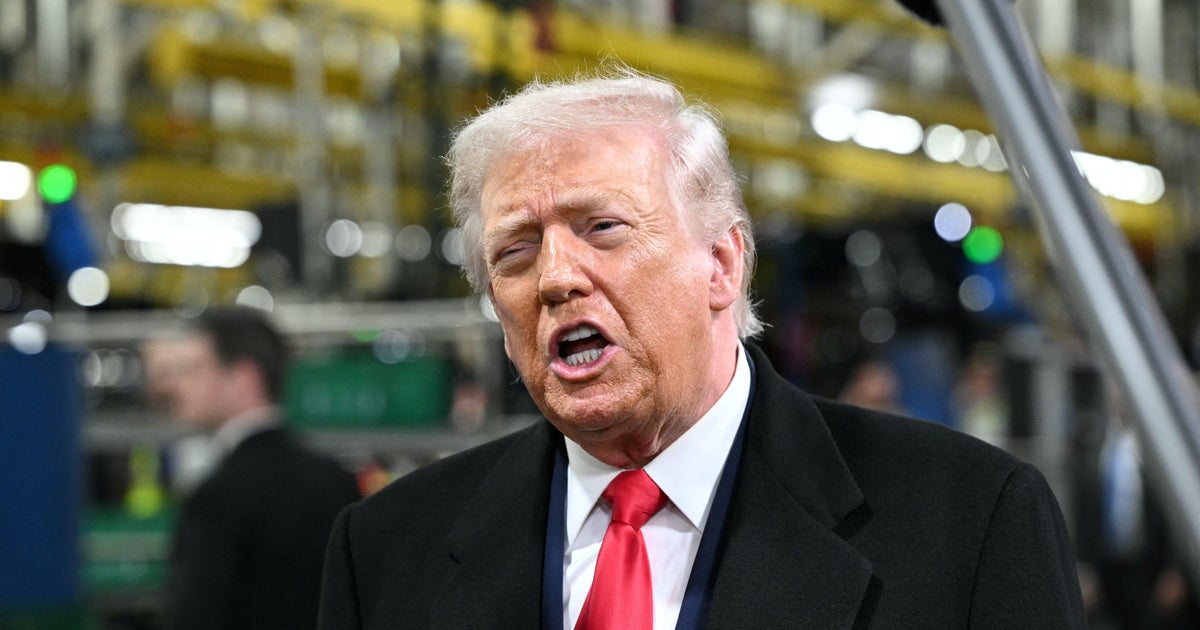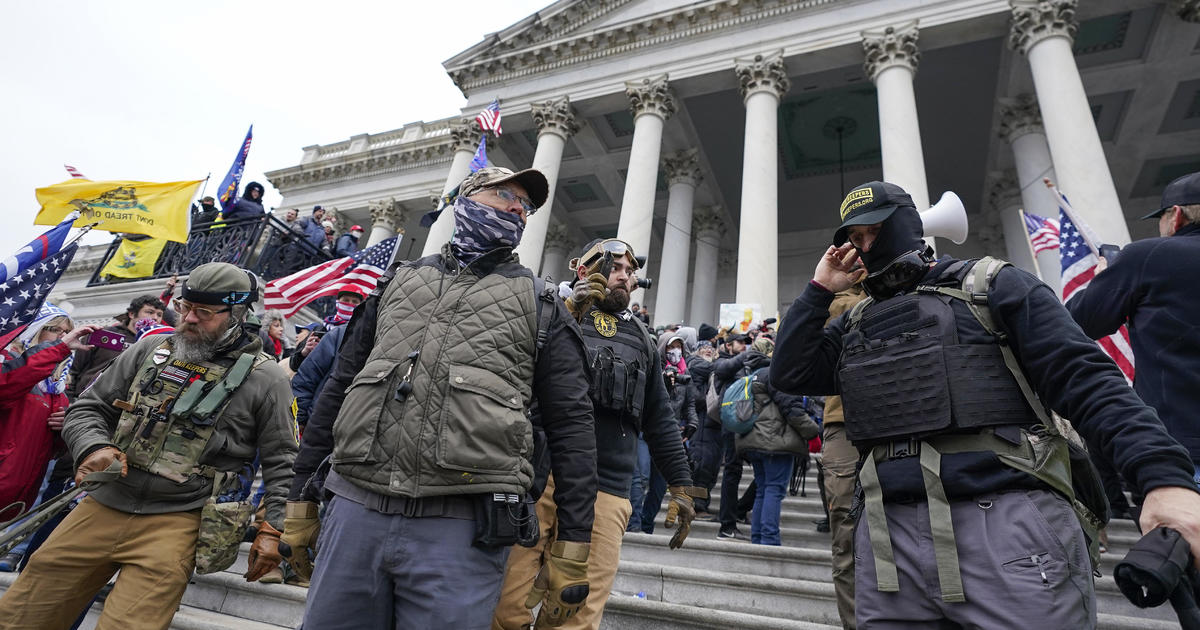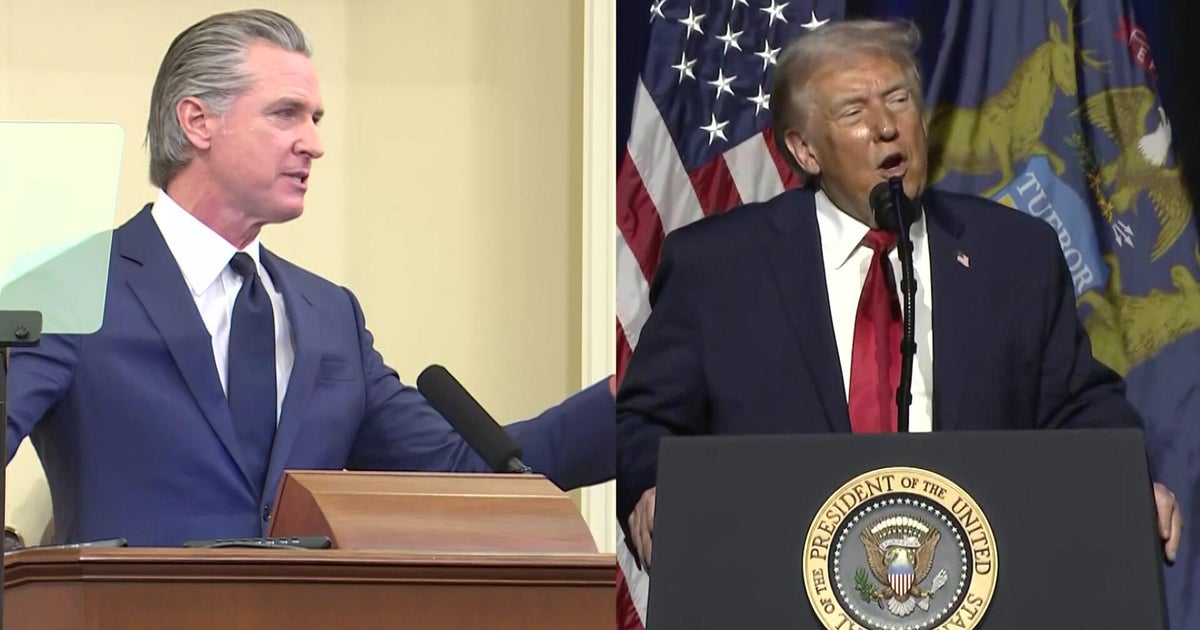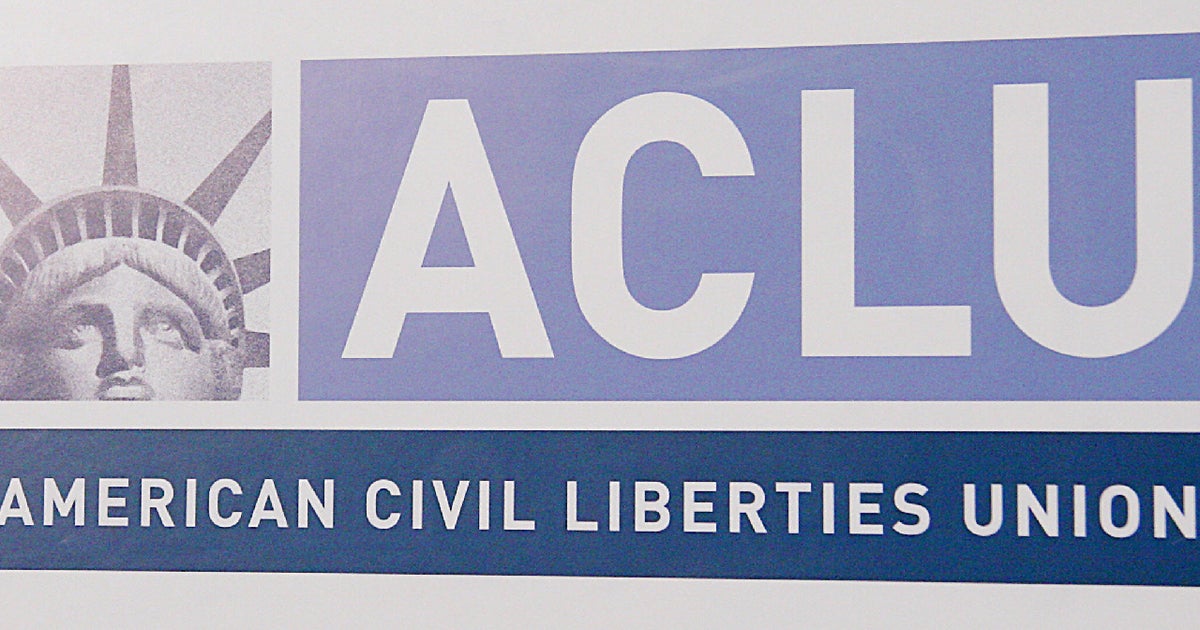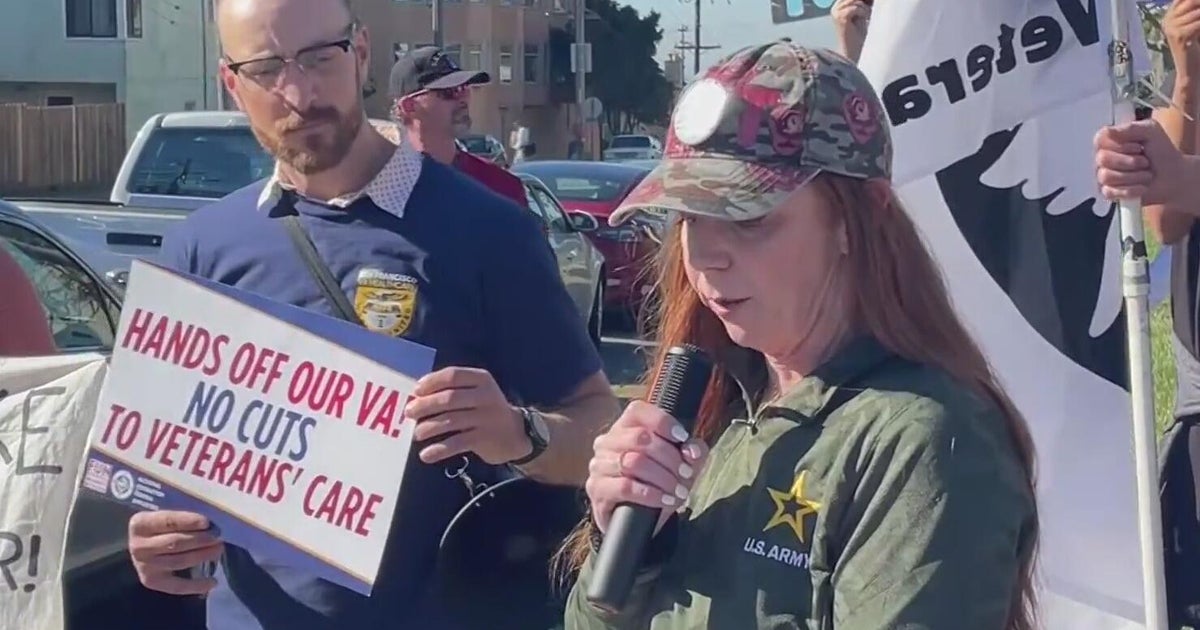Losses, Regrets And Questions At Companies Trump Endorsed
Follow CBSMIAMI.COM: Facebook | Twitter
NEW YORK (AP) — Six years ago, Donald Trump stood before 5,000 people in a hotel theater in downtown Miami and informed them he had a rescue and recovery plan for the recession-battered nation.
His remedy: Join the sales team of a business that sold, among other things, specially tailored vitamins based on a user's urine analysis. Anyone with drive, and $497 to pay for a special "FastStart" marketing kit, could begin raking it in. They would profit not just from their own sales of Trump-branded products, but from convincing other go-getters like themselves to start selling. Anyone they recruited would have to pass on a cut of their sales to them, and those recruits, in turn, could get a cut from their own recruits.
It was a multi-level marketing company, like Avon, Amway and Mary Kay.
"We're all going to be successful together," Trump declared enthusiastically about the business that had just been rechristened The Trump Network after he struck a licensing deal with the three men running it. He said he believed this new venture — "our company" — would become the "biggest in the industry."
"This is going to be something that's really amazing," he said.
Less than a year later, some of the company's biggest salespeople stopped getting paid. By 2012, Trump's licensing contract ended and the owners sold the business. The Trump Network was no more.
Trump is famous for having built a business empire on appealing to the affluent, using their love of luxury to get them to stay at his high-end hotels, play on his seaside golf courses and buy multimillion-dollar condominiums in his soaring glass towers. The sales pitch: If you've got money, I can help you enjoy it.
In recent years, he's also appealed to a far less affluent group in three businesses, using a different pitch: If you don't have much money, follow me. I can help you succeed.
While Trump says these business deals were successful for him, many who plunked down money hoping to catapult into the ranks of the wealthy fell far short, leaving anger, regret and finger pointing. Some fault Trump; others blame themselves for assuming the Trump association was a seal of approval and not vetting the businesses sufficiently on their own. Still others question the partners Trump worked with and the entire multi-level marketing industry.
What is clear is that long before Trump's seductive mix of optimism, hyperbole and grand pronouncements proved a success on the presidential campaign trail, it exerted a powerful tug on middle-class folks looking to make it big.
"There's a certain pattern to MLMs that is completely consistent with Trump's image, of the 'you can do it, anybody can do it, anybody can succeed' message," said William Keep, the dean of the business school at The College of New Jersey. "This industry — multi-level marketing — is literally always fighting the criticism that the fundamental business model is a scam. In order to offset that, getting endorsers lends legitimacy. Donald Trump, if nothing else, conveys the ability to succeed."
When questioned By The Associated Press about three Trump-linked businesses pitched to the middle class, Trump's attorney, Alan Garten, said the vitamin company and a real estate school called Trump University were successes and that Trump had no ties beyond speaking engagements with a third company, a phone business called ACN. He complained the media highlight only those deals they think are dubious when in reality, Trump has a long, successful career.
Because these businesses are privately held, it's unclear how much money Trump has earned, other than the limited information reported to the Federal Election Commission.
The three companies differed in the depth of Trump's involvement, the industries in which they competed and in how they operated. Trump University, for instance, was not a multi-level marketing company like the other two. But each relied on Trump as a cheerleader to grow the business, for good or ill.
___
THE VITAMIN COMPANY
___
Though the Trump Network was a disappointment, former top salesman Lenny Izzo still recalls fondly the thrill at learning Trump was backing the business.
"Donald Trump put his brand on it," said Izzo, who supports Trump's election bid. "The company went south, but it wasn't because of Donald Trump. I personally don't hold him responsible. It was poorly managed. It wasn't up to Trump to manage."
Others who bought into Trump's vision aren't as charitable.
"What he said on stage that night and what actually happened are two different things," said former saleswoman Jenna Knudsen. She said she lost her house and car after the paychecks dried up.
At the time Trump rebranded the vitamin company in 2009, a dozen years after its founding, Knudsen said she was making six figures, enough to support her children as a single mom. She hoped that Trump would boost the business.
Now she wonders why he didn't do more to keep the company afloat.
"You can't blame what happened in your life on someone else," Knudsen said. "Maybe Trump had nothing to do with it. I'll never know."
Scott Stanwood, one of the three original owners who brought Trump into the business, said he couldn't talk because of "confidentiality agreements." Trump's lawyer, Garten, said plenty of salespeople did "very well" and that, anyway, Trump's role was limited to licensing his name. "Anyone who claims that they were not aware of the extent of Mr. Trump's role is lying to himself."
And indeed, down The Trump Network's website, below the Trump family crest, there is a link titled "Disclaimer." Amid a lengthy paragraph is this: "The Trump Network is not owned nor are any products sold over 'The Trump Network' developed or manufactured by Donald J. Trump or any entity owned or controlled by Donald J. Trump."
___
TRUMP THE TEACHER
___
Trump University, a school offering his insights into getting rich in real estate at three-day seminars, was different from the vitamin company. Trump was a founder and an owner, and he portrayed himself as taking an active role, shaping the curriculum and vetting the instructors.
"My father did it, I did it," went one ad, referring to the fortunes they made in real estate, "and now I'm ready to teach you how to do it."
The closest most students got to the mogul was a life-sized cardboard cutout. A 2013 lawsuit from the New York attorney general and two class actions in California claim the three days of instructions were largely useless, and that students paying $1,495 to attend were misled. Worse, students at the seminars were told to max out their credit cards to pay tens of thousands dollars more for additional "Elite" training that, the lawsuits claim, were also largely unhelpful.
"I wasted my entire life savings on Trump," said former Trump University student Nelly Cunningham in an affidavit for the New York case. She added, "I feel like such a fool."
In 2010, Mark Sokol said he paid for the three-day seminars at a hotel in Woburn, Massachusetts, after attending one of the school's free introductory classes to get people to sign up. "I was thinking, he's into real estate, maybe there's some merit," he recalled.
He quickly regretted it. Sokol, now 51, said the main speaker was ill prepared, offering dated information. Sokol also didn't like being pressed to hand over more money for the "Elite" package, which cost $35,000. He refused. We were "preyed upon," he told the AP. "It was high pressure."
Garten, Trump's lawyer, said students loved the school, now called the Trump Entrepreneur Initiative.
Trump has said that the 2013 lawsuit, which accuses him of fraud, is without merit and that nearly all student surveys rated the program excellent. Garten sent the AP sworn statements from some of these students — "great learning experience," led by "fantastic" teachers, wrote one — and described the dissatisfied ones as an insignificant minority, given the 80,000 who attended the free or paid classes. "I am sure you could find in any business or business venture a handful of people who weren't satisfied," he said.
He said they had "10,000 surveys online from 10,000 students, all of whom gave it the highest marks."
The New York lawsuit is pending. Under pressure from regulators, the school had to drop "university" from its name in 2010 because it had never been licensed as one. It stopped taking new students later the same year.
___
TRUMP TOUTS PHONE COMPANY
___
Trump has also endorsed ACN, a provider of telephone and other services that uses a Trump Network-like system of salespeople recruiting other salespeople, each paying an "initial fee" of $499 to join. The North Carolina company has come under fire from regulators in Canada and Australia and two U.S. states, Montana and Maryland, accused of making false promises to build its business. The company has fought the charges, and succeeded in getting the cases dismissed, save for the one in Maryland, which is still pending.
The Montana accusations were especially harsh. In 2010, the state's securities regulator claimed ACN ran an "illegal pyramid promotional scheme" — relying too heavily on fees from new salespeople to generate income — and issued a cease-and-desist order. Regulators dropped the charge that same year after ACN agreed to refund money lost by salespeople and to improve training.
The next year, 2011, Trump featured the company on his TV show, "The Celebrity Apprentice." He never licensed his name to the company. His role was limited to promoting it, which he did so repeatedly. Earlier, he had appeared in an ACN video calling it a "great company." And in the past two years, he gave at least three speeches at ACN events, earning $1.35 million in fees, according to figures released by the Federal Election Commission.
Wenling Babbitt, 48, said Trump's endorsement helped persuade her to join Xoom Energy, an ACN-controlled utility. A neighbor and her son, already on the salesforce, said that she could cut her gas bill if she switched to Xoom and, if she got others to switch, could make money. Then they mentioned the billionaire's name.
Babbitt said she and her husband each spent $499 to join Xoom, but then her husband noticed the gas bill for their San Diego home had gone up, not down. She said it took a half-dozen calls to get ACN to switch them back to their old utility, and her view on Trump has soured.
ACN said that neither it nor Xoom has ever "guaranteed" customers would save money beyond promotional offers lasting at most 90 days. It added that the regulatory probes are mostly old, stretching back to the 1990s.
On "The Celebrity Apprentice," Trump said he knew ACN "very well" and, in the video ad, said he had done "a lot of research" to gain insight into how it has "stayed ahead of the pack." In a Wall Street
Journal article in August, he was quoted saying he was "not familiar" with what the company does or how it does it.
Garten said Trump stands "100 percent" behind his words to The Wall Street Journal.
For more on Campaign 2016, click here.
(© Copyright 2016 The Associated Press. All Rights Reserved. This material may not be published, broadcast, rewritten or redistributed.)
